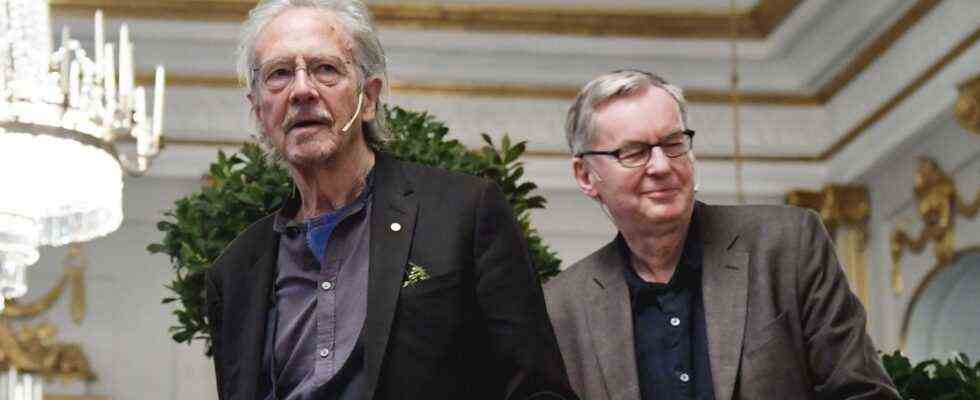The corks will pop again soon when it turns out this Thursday at 1 p.m. who will receive the Nobel Prize for Literature. On the same day, translation licenses are sold, reprints are commissioned and appreciations are carved into the keys. A whole Nobel Prize industry is entering the next round.
She is a little ailing, the most important award for a living writer, which is given every year by the Swedish Academy in Stockholm. Arno Schmidt already scoffed in the fifties that the price brought a “stigma of mediocrity” with it, but the downward spiral only really started in 2016. When the prize was Bob Dylan, not a writer, but was awarded to a songwriter, it was feared that from now on the fine art of poetry would no longer count particularly much in the northern tip of Europe. There was talk of shifting borders, of an expanded concept of literature, of the dagger in the back of true literature. So much influence is attributed to this prize, which was donated by Alfred Nobel at the beginning of the 20th century for an “ideally outstanding work”.
At least one could still discuss literature in the Dylan case. Then 2018 came perhaps the darkest year in the history of the award. At first it appeared to be a case of corruption when it emerged that Jean-Claude Arnault, the husband of Katarina Frostenson, who was a member of the Swedish Academy at the timewho had pierced the names of some of the award winners before they were announced to the press. Then the suspicion widened. Arnault had run a boozy literature salon with money from the academy and made sexual abuse a criminal offense. This was followed by a clear cut in the venerable institution, ten of the 18 academy members elected for life resigned.
It is possible that political foresight is not something that can be expected from the academy
In 2019 and 2020 it continued with awards from writers that some considered to be absolute miscast. The more important a prize, the more nagging about the decisions of the people who award it: This lot hits the Nobel Prize Academy particularly. That the award to Peter Handke would be criticized, and not because of his literary merits, but because of his political lapses, was foreseeable. As of 2020 the American poet Louise Glück was awarded, which hardly anyone in this country knew, it was said in turn that their texts were too conventional, too apolitical. In the end, it was also repeatedly mentioned that the prize has only been awarded 16 times to a woman in over 100 years and even less often to authors outside of the West.
After all, one might think that the Nobel Prize Committee is avoiding the controversy this year as well. If you believe the odds of the betting shops, next to the long-running favorites Haruki Murakami and Margaret Atwood, the most promising candidate is a French woman. Annie Ernaux, the grande dame of the generational novel with a sociological perspective, was best known in this country for her autobiographical novel “The Years”. But Ngũgĩ wa Thiong’o, who was born in Kenya in 1938, is also repeatedly brought into play. His novels, which he writes in Kikuyu, have been translated many times, the author teaches at elite American universities and is perhaps the most political of the candidates because of his anti-colonial essays.
However, political foresight may not be something that can currently be expected from the crisis-ridden academy. Rather, she clearly rejects such requests: “We are only concerned with literary quality,” said juror Ellen Mattson in a recent interview.

